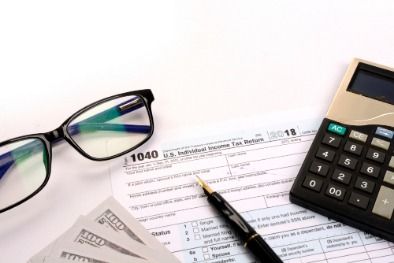
Congress: Tax Preparers Must Police Their Clients
Thanks to a new law signed in May, tax preparers, whether certified public accountants, lawyers, or your local H&R Block, can be assessed strong penalties for filing returns with “questionable or aggressive tax items” on behalf of their clients. This new regulation will go into effect for 2007 tax returns.
The Wall Street Journal says this could result in higher fees charged to clients or professionals less willing to work with customers who insist on borderline deductions.
“It’s politically unacceptable to put more agents on the street or increase the IRS’s budget,” says Cono Namorato, a former IRS official and now a Washington lawyer at Caplin & Drysdale. Thus, the new law represents “an attempt to deputize” more tax practitioners by “holding them to a higher standard.”
 Basically, the IRS can’t handle all the research necessary to spot tax cheats. In the past, they’ve invited people to tattle on their friends for a hefty reward; now, they are practically requiring professional preparers to play the IRS’s role.
Basically, the IRS can’t handle all the research necessary to spot tax cheats. In the past, they’ve invited people to tattle on their friends for a hefty reward; now, they are practically requiring professional preparers to play the IRS’s role.
Tax preparers have long faced possible penalties for signing questionable returns without specifically disclosing the tax positions in question. But the new law raises the standards considerably, and sharply boosts penalties to $1,000, or half the preparer’s total fee, whichever is larger. Fines for preparers showing “willful or reckless conduct” are much higher still.
The issue is the IRS Form 8275 which must be filed to disclose any “items or positions… that are not otherwise adequately disclosed on a tax return…” The form is a signal to the IRS to look intently at the filer’s details, and the government doesn’t want people to get away with complex tax situations without completing this form. If the form is not filled out, the tax payer as well as the professional preparer could face significant penalties.
The purpose of this is to collect more of the tax that is owed by the government but goes uncollected, which is a good mission. I don’t particularly like the idea of “deputizing” professionals, but I do believe in some accountability for those providing the advice. The IRS didn’t even ask for this new law, it was purely a creation of Congress.


Article comments
This rule is the first step toward licensing tax preparers. Some states have already instituted rules that require tax preparers to have continuing education, to be tested, and to be licensed.
Amazing, but true, in most jurisdictions there are no rules to keep anyone from hanging out a sign and calling themselves a tax preparer.
I disagree with this new rule because as a preparer I am not in a position to audit my client’s finances. I can only rely on the information that they bring to me and the statements that they make to form the judgments necessary to prepare their return.
The absolute majority of tax PROFESSIONALS do not encourage, condone, or support tax cheating of any kind. After all, we are taxpayers too. We despise the fly-by-night tax operations run by the greedy, quick-buck, anything for a refund fools.
We just apply the laws as Congress writes them.
Imagine if the rules on how you do your job were changed over 100 times every year.
I’m not into ratting people out, but at the same time these are the tax professionals who are helping their clients fill out their taxes. They are implicity condoning or advocating cheating on taxes when they sign off. Some inadverdantly so, others activley so. They should be held responsible. I have little sympathy for people who cheat on their taxes.